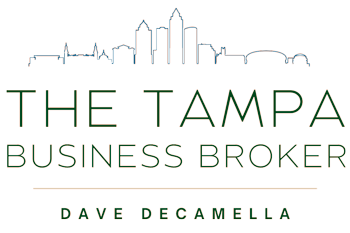
Increasing your business’s value before selling it is essential, but it takes careful planning. Strategic financial preparation is key to presenting your company in the best light to potential buyers. By organizing your finances, streamlining operations, and seeking expert advice, you can significantly enhance how your business is viewed. This results in stronger offers and a higher selling price.
Prepare for the Sale
Selling a business is a complicated process that requires careful consideration and planning. Beginning the process early gives you time to address challenges, make improvements, and present your business in the best possible way. Rushing into a sale without proper preparation can result in missed opportunities and a lower valuation.
Identify Goals: Before starting the selling process, it’s important to clearly identify your goals. Are you looking to maximize profits, transition into retirement, or pursue new opportunities? Understanding your objectives is key.
Recognize Possible Challenges: Selling a business often brings unique challenges, from financial performance and market conditions to legal issues and operational obstacles. Recognizing these challenges early allows you to take proactive measures to address them and minimize their effect on the sale.
Develop Practical Strategies to Achieve Your Objectives: Your strategies should address various aspects of the business, including financial efficiency, operational enhancements, and market positioning. Whether the goal is to improve profitability, strengthen your brand’s image, or expand market reach, every strategy should be tailored to align with your primary goals and address the unique challenges encountered during the sales process.
Analyze Financial Statements
Financial statements play a vital role in making informed decisions. Analyzing these records provides key insights into a company’s financial performance and overall health. Examining income statements, balance sheets, and cash flow statements helps business owners understand their company’s financial standing in detail.
Assess Business Strengths and Weaknesses: Financial statements offer a snapshot of your business’s performance over a defined period. By carefully analyzing income statements, balance sheets, and cash flow statements, you can reveal the strengths that drive your business forward and the weaknesses that may impede its growth.
Identify Key Profit Areas: Profitability is the cornerstone of any business’s success. Financial statements offer valuable insights into revenue streams and associated expenses. Analyzing income statements allows you to identify the products, services, or segments that drive the greatest contribution to your bottom line.
Evaluate Liquidity: Analyzing cash flow trends allows you to determine if your business has sufficient reserves to cover operating costs, debt payments, and other financial responsibilities. It also highlights potential cash flow challenges that might arise during sales. Evaluating liquidity is crucial for maintaining financial stability and provides reassurance to potential buyers about your business’s ability to handle economic changes.
Asset Utilization: Maximizing profits and delivering returns to shareholders relies on efficient asset utilization. Balance sheets provide crucial insights into your business’s assets and how they are being used. By examining asset turnover ratios and utilization metrics, you can assess how effectively your business is using its resources to drive revenue.
Streamline Operations
Efficient operations help lower costs, directly improving profitability. Optimizing processes allows businesses to reduce waste, minimize overhead, and utilize resources more effectively. This strengthens profit margins and enhances the company’s financial health, making it more appealing to potential buyers. In the end, it boosts your company’s value to prospective purchasers.
Streamline Processes: Standardizing workflows involves creating uniform processes and procedures within an organization. Establishing clear instructions for completing tasks helps to reduce mistakes, delays, and inconsistencies. This method improves efficiency by eliminating redundant activities and ensuring optimal use of resources.
Integrate Best Practices: Best practices refer to established techniques that have been shown to produce excellent results. By integrating these proven methods into your operations, you can benefit from the insights of industry experts and steer clear of common mistakes.
Utilize Technology: Technology serves as a powerful asset for improving operations and boosting productivity. By utilizing automation, data analytics, and digital tools, businesses can streamline manual tasks, decrease human error, and uncover new opportunities for growth.
Consult a Professional
Professional advisors, like The Tampa Business Broker, Dave DeCamella, provide an unbiased view of your business’s financial health and market value. They can evaluate your financial statements, analyze the market landscape, and compare your company to industry benchmarks. This thorough assessment highlights your business’s strengths, weaknesses, and growth opportunities, equipping you to make well-informed decisions.
Preparing your business for sale requires taking proactive steps to boost its value. With careful planning and strategic improvements, you can make your business more appealing to buyers and secure a higher selling price. Dave DeCamella, The Tampa Business Broker, leverages his extensive experience and expertise to help you navigate the sales process and reach your financial goals.
